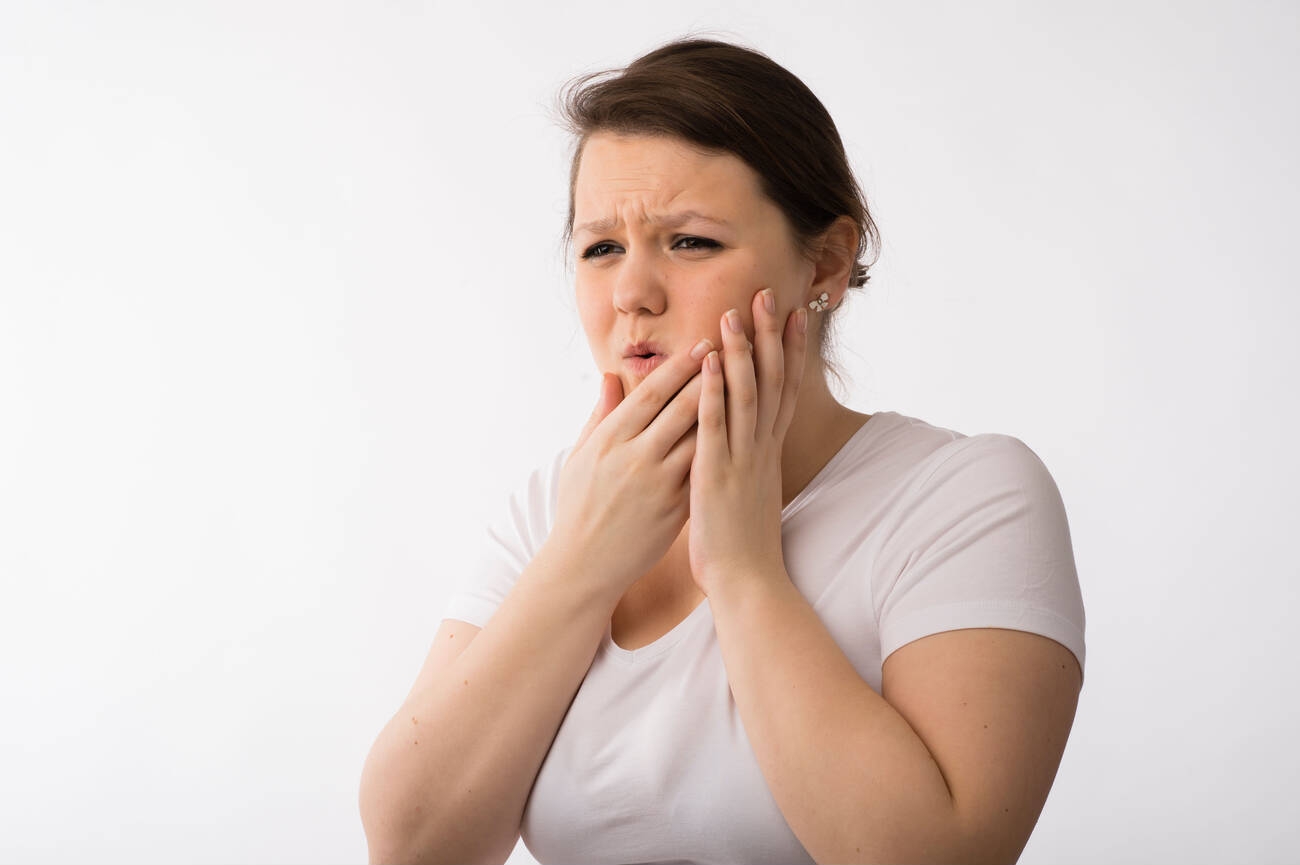Mouth ulcers, Canker Sores or Aphthous Ulcers may seem like a tiny nuisance, but they can cause a great deal of discomfort and pain. They are small, painful, and often white sores that form in the soft tissue of your mouth. They may appear on the inside of your lips or cheeks, on your tongue, or at the base of your gums. In some cases, mouth ulcers can cause difficulty in eating, drinking, or speaking, which can last for around 7-10 days, some can persist for weeks or months.
They typically occur due to an array of factors, ranging from stress, hormones, genetics, infections, or even nutritional deficiencies. While the pain and discomfort may not always require a trip to your dentist, it is essential to understand what you are dealing with and know the treatment options. Fortunately, there are some simple home remedies or natural remedies you can follow as a self-treatment to get instant pain relief and get rid of the soreness and discomfort.
Here are the 17 best home remedies for mouth ulcers (canker cores) that you can consider.
1. Salt Water Rinse
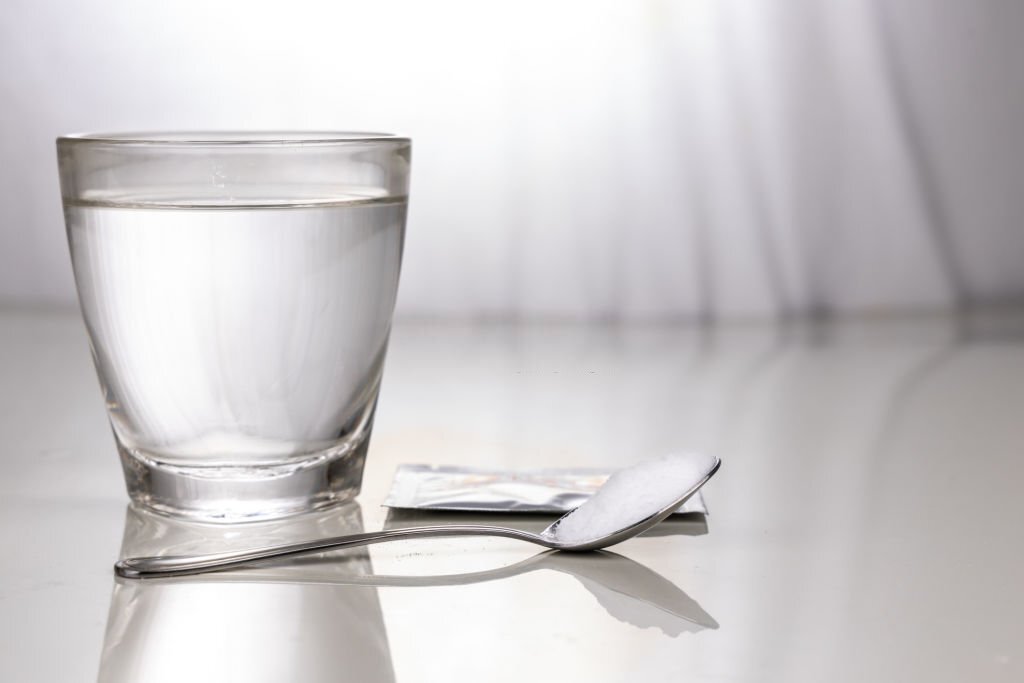
Using salt water is one of the simple, easy, and most effective home remedies to get rid of sore pain instantly. Saltwater has been used for centuries to treat wounds and help promote healing. The same applies when it comes to mouth ulcers. Salt has a natural antibacterial property that can help to reduce inflammation and fight off bacteria which is the main contributor to mouth ulcers.
Not only does salt water help to ease the pain and discomfort of mouth ulcers, but it also helps to speed up the healing process. Another benefit of using salt water is that it is a natural remedy that is safe and affordable. You do not need to rely on expensive medications or treatments to ease your symptoms.
How to use:
- Mix 1 teaspoon of salt with a glass of warm water.
- Swirl the mixture in your mouth for 30 seconds to 1 minute and spit it out.
- Repeat this process a few times a day as per your requirement.
2. Honey
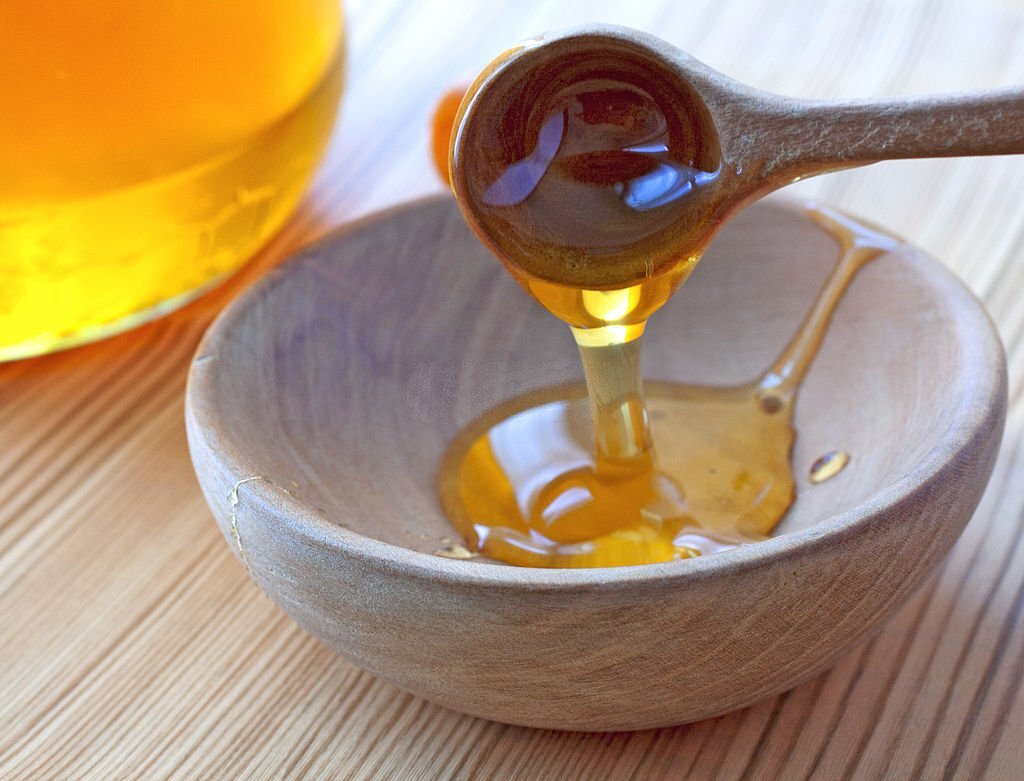
Honey, not only has a pleasantly sweet and sticky taste, but it is also packed with antibacterial and anti-inflammatory properties, making it ideal for treating mouth ulcers. Also, it is a great way to avoid all the unnecessary side effects that come with taking over-the-counter medications. A single drop of honey can provide immediate relief from the pain associated with mouth ulcers. However, it is important that you should not leave honey overnight on the sores, as this will damage your teeth.
How to use:
- Apply honey directly to the sore spot using a cotton swab or clean finger (or)
- Add 1 tablespoon of honey with half a glass of warm water.
- Mix thoroughly to make a mouthwash.
- Simply swirl the solution around your mouth for 1 or 2 minutes and spit it out.
Note: Not all honey is the same. Most of the honey you buy at the store or supermarket is pasteurized, which means it is heated up to a high temperature. This process destroys most of the nutrients in the honey. Unpasteurized and unfiltered honey is less processed and it has the highest healing property.
3. Coconut Oil for Mouth Ulcer
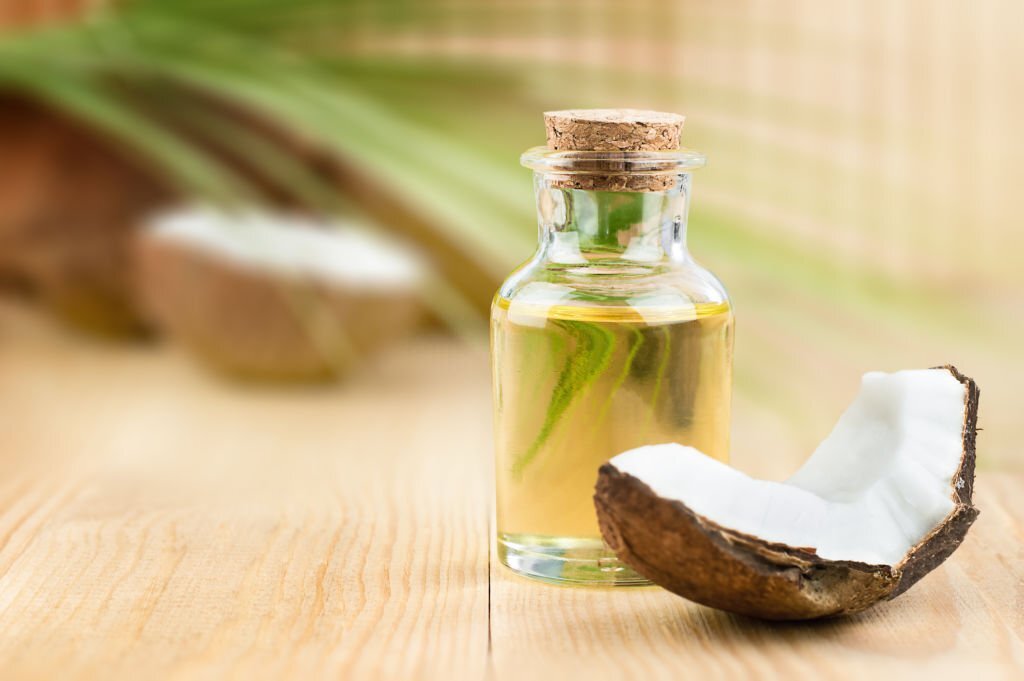
Traditional medicine has used coconut oil for centuries for its healing properties. Mouth ulcers are painful, but coconut oil can help you get rid of them naturally and quickly. It contains anti-bacterial, anti-viral, and anti-inflammatory compounds that help heal and soothe mouth ulcers in a short amount of time.
Also, it moisturizes the skin and prevents dryness which aggravates mouth ulcers further. Being a naturally occurring source of Lauric acid coconut oil has been proven to increase immunity and fight infections.
How to use:
- Choose a high-quality, organic, unrefined coconut oil.
- Apply coconut oil directly to the ulcer for faster healing. (or)
- Simply dab a small amount of coconut oil onto a cotton swab and apply it to the canker sores.
- Repeat this process several times as per your need.
Read More: ABC Juice: Most Amazing Health Benefits and its Recipe
4. Alum Powder for Canker Sores
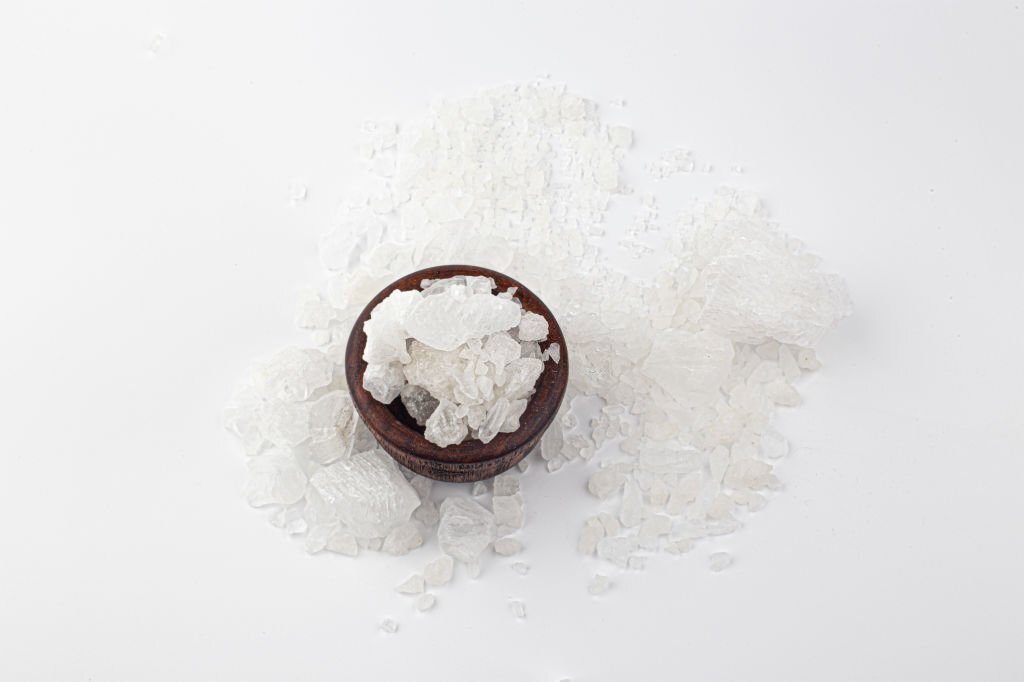
Alum powder, also called potassium alum, is a naturally occurring mineral salt. It has a long history of being used for both internal and external medicinal purposes. One of the most common uses of alum powder is a natural, effective way to treat mouth ulcers. Alum powder acts as an astringent, so when you apply it to your mouth ulcer it causes the tissues to contract. This reduces inflammation and helps the ulcer heal faster. Alum powder also acts as an antiseptic, which helps prevent infection and keeps your mouth clean as the ulcer heals.
How to use:
- Clean the affected area thoroughly with lukewarm saltwater. This will help remove any bacteria or debris which interfere with the healing process.
- Make a paste by mixing a small amount of alum powder with water.
- Dip a cotton swab or cotton ball into the alum powder, making sure to coat it evenly.
- Gently dab the alum paste onto the canker sore, do not apply too much pressure.
- Hold the alum powder against the canker sore (allow it to adhere properly) for 2 minutes.
- Wash your mouth thoroughly.
- Repeat as needed, up to three or four times a day.
Alum powder is usually safe to use in small doses, but if you use it too much or inhaled or if you are sensitive to it, it can cause burning or irritation. If you feel any pain or discomfort using it, stop it right away and talk to a doctor.
Read More: Sugarcane Juice: A Comprehensive Evidence-Based Benefits
5. Baking Soda for Mouth Ulcer
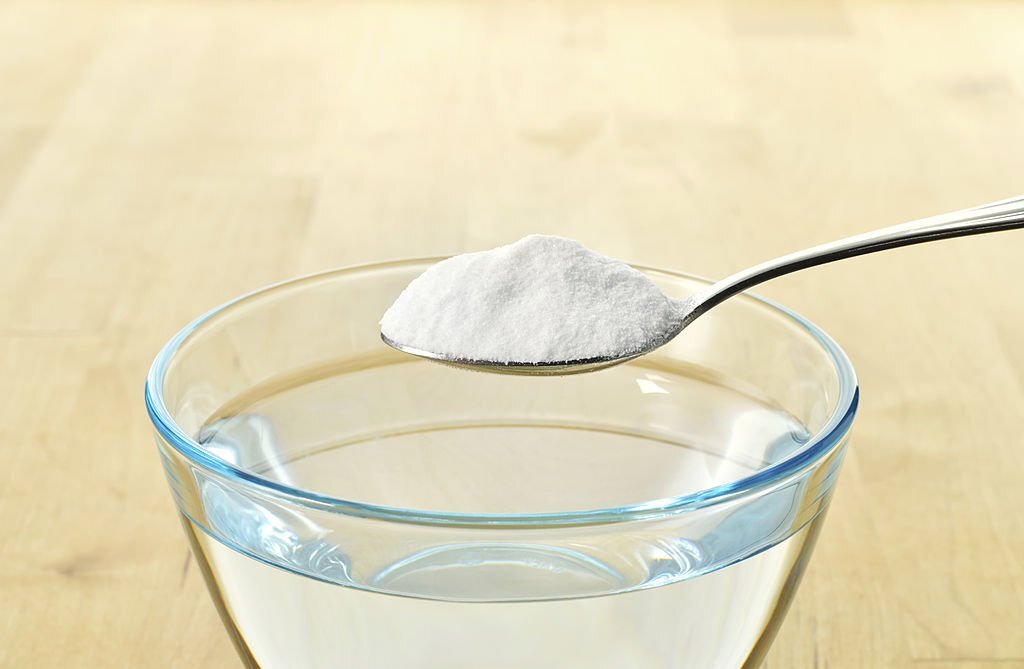
The alkaline nature of baking soda makes it an effective home remedy for mouth ulcers. When mixed with water, the alkaline solution neutralizes the acids in the mouth, thereby reducing inflammation and promoting healing.
How to use:
- Mix 1 tablespoon of baking soda with 1/2 cup of warm water.
- Swish the solution around in your mouth for 30 seconds to 1 minute.
- Spit out the solution and rinse your mouth with lukewarm water.
- Repeat this process 2-3 times a day, or as needed.
6. Sea Salt and Hydrogen Peroxide for Canker Sores
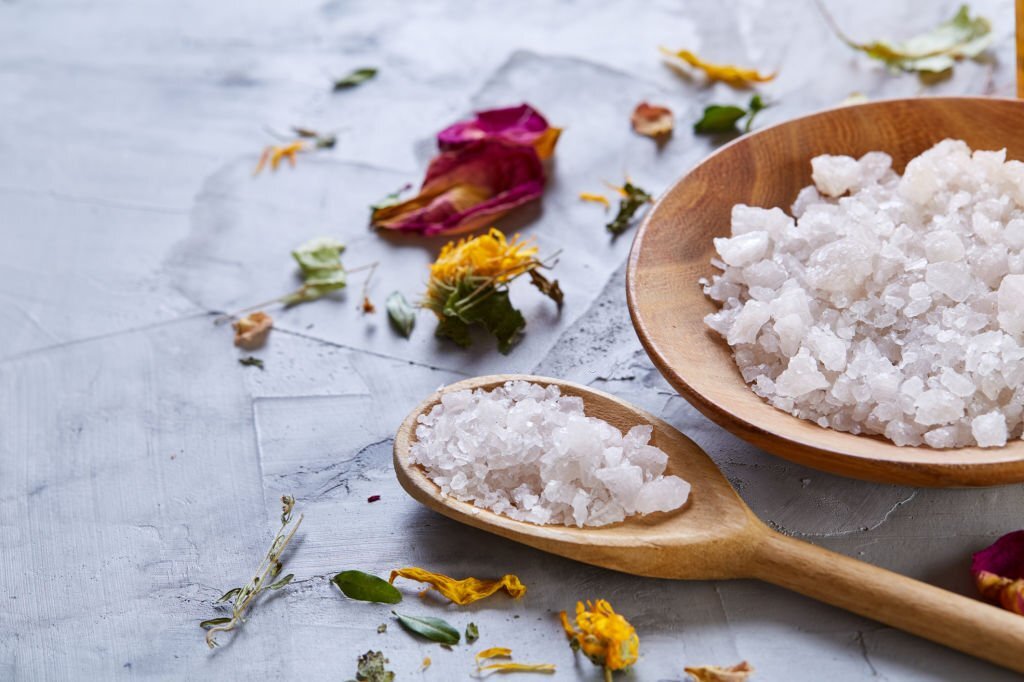
Hydrogen Peroxide is a readily available drugstore chemical compound and the best home remedy for mouth ulcer. It is widely used in a variety of applications, such as disinfection, antiseptics, and bleaching. Its antibacterial properties can be beneficial in the treatment of mouth ulcers, as it can inhibit the spread of bacteria and aid in the healing process.
It is found to be an effective pain reliever, as it can reduce the inflammation and swelling of the area, thereby alleviating the discomfort associated with ulcers. Furthermore, the removal of dead tissues and debris surrounding ulcers can be removed by hydrogen peroxide, which speeds up the healing process.
How to use:
- Mix 2 tablespoons of sea salt with equal parts of 3% hydrogen peroxide and water in a cup.
- Dip a cotton ball into the mixture and apply it directly to the canker sore (or)
- Swish the mixture around in your mouth for about 1 minute and make sure to focus on the affected area.
- Spit out the mixture and rinse your mouth with water.
- Repeat this process a few times a day.
7. Clove Oil
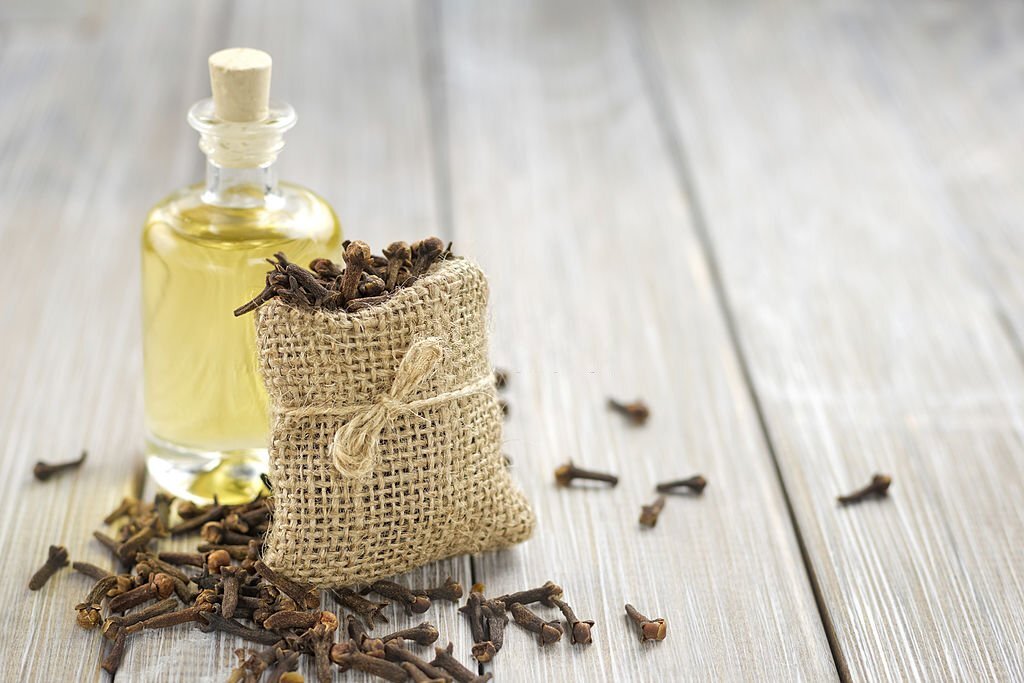
Clove oil has been used for centuries as a natural painkiller. Eugenol is a powerful compound found in clove oil and has anti-inflammatory, antiseptic, and analgesic properties. When clove oil is applied topically, it numbs the affected area, reduces inflammation, and prevents infection.
The analgesic properties make it an ideal choice for relieving the discomfort of mouth ulcers. The antiseptic properties help kill bacteria and reduce the risk of infection. And the anti-inflammatory property of eugenol can help reduce swelling and inflammation, making it easier for you to chew and swallow.
How to use:
- Dip a cotton swab in the clove oil.
- Apply it directly to the affected area.
- Leave it for a few minutes as the skin absorb the oil.
- Rinse your mouth with warm water.
8. Apple Cider Vinegar
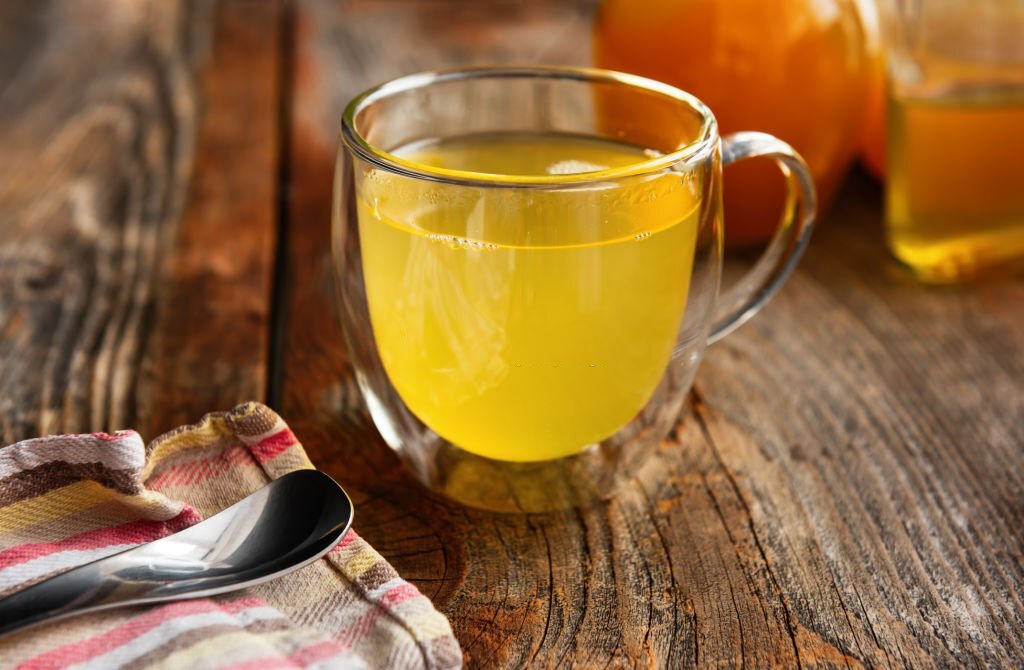
Apple cider vinegar (ACV) has been widely known for its numerous health benefits, such as aiding digestion and improving skin health. However, it has been found to be particularly effective in treating mouth ulcers.
Apple Cider Vinegar is packed with antibacterial and anti-inflammatory properties, making it a powerful weapon against mouth ulcers caused by bacteria or inflammation. It contains acetic acid that alkalizes the body and creates an environment that is unfavorable for the growth of bacteria and also effective in reducing pain and inflammation.
How to use:
- Mix one tablespoon of apple cider vinegar, 1 teaspoon of honey or a pinch of salt, and a cup of warm water.
- Gargle the mixture for 1 minute.
- Spit it out and rinse your mouth thoroughly with water.
- Repeat twice a day or as per the requirement.
9. Turmeric for Mouth Ulcer
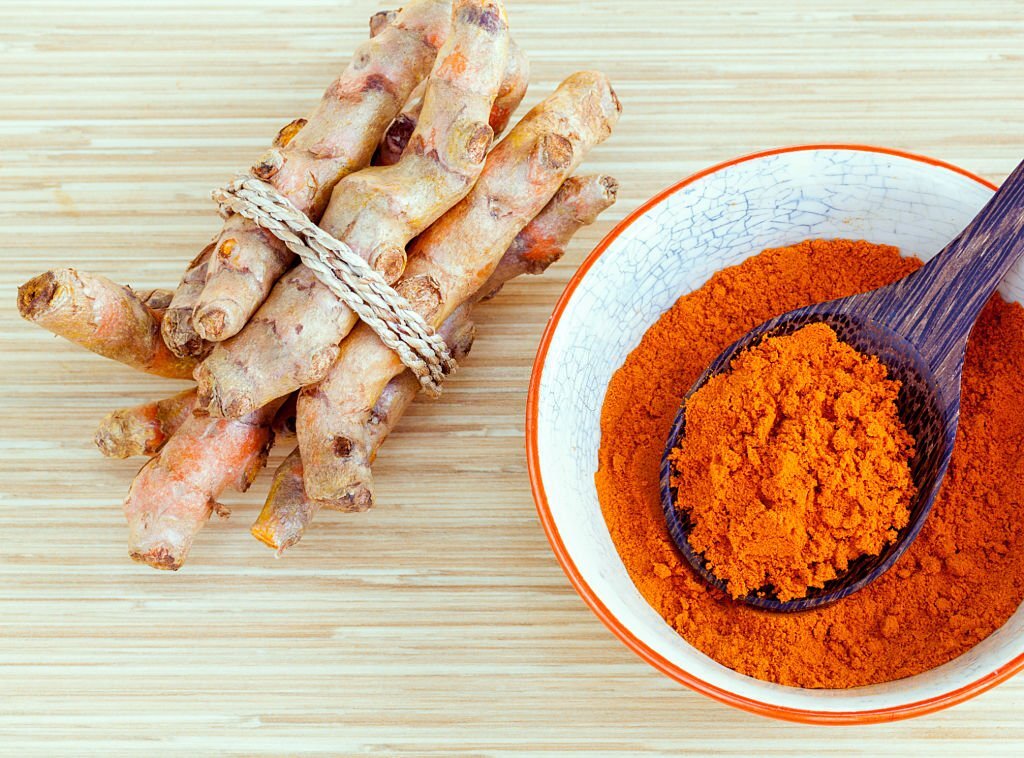
Turmeric is an Ayurvedic medicinal herb that has been utilized by our ancestors. It is a superfood that contains a compound known as curcumin which is well known to possess anti-inflammatory, anti-bacterial, and healing properties, and is said to be associated with a variety of health benefits.
This means it can help reduce the swelling, redness, and pain associated with mouth ulcers, as well as kill the bacteria causing the infection. Its healing properties also help regenerate damaged tissues and promote the formation of new cells, helping the mouth ulcer to heal faster.
How to use:
- Mix a teaspoon of turmeric powder with a few drops of water or a tablespoon of organic honey to form a paste (or)
- Boil a cup of water and add a teaspoon of turmeric powder to it. Then strain the cup of warm water and allow it to cool (turmeric mouthwash).
- Apply the paste directly onto the affected area (leave for 10 minutes) or swish your mouth with turmeric mouthwash.
- Rinse your mouth with normal water.
- Repeat this process three times a day for the best results.
10. Garlic for Mouth Ulcer
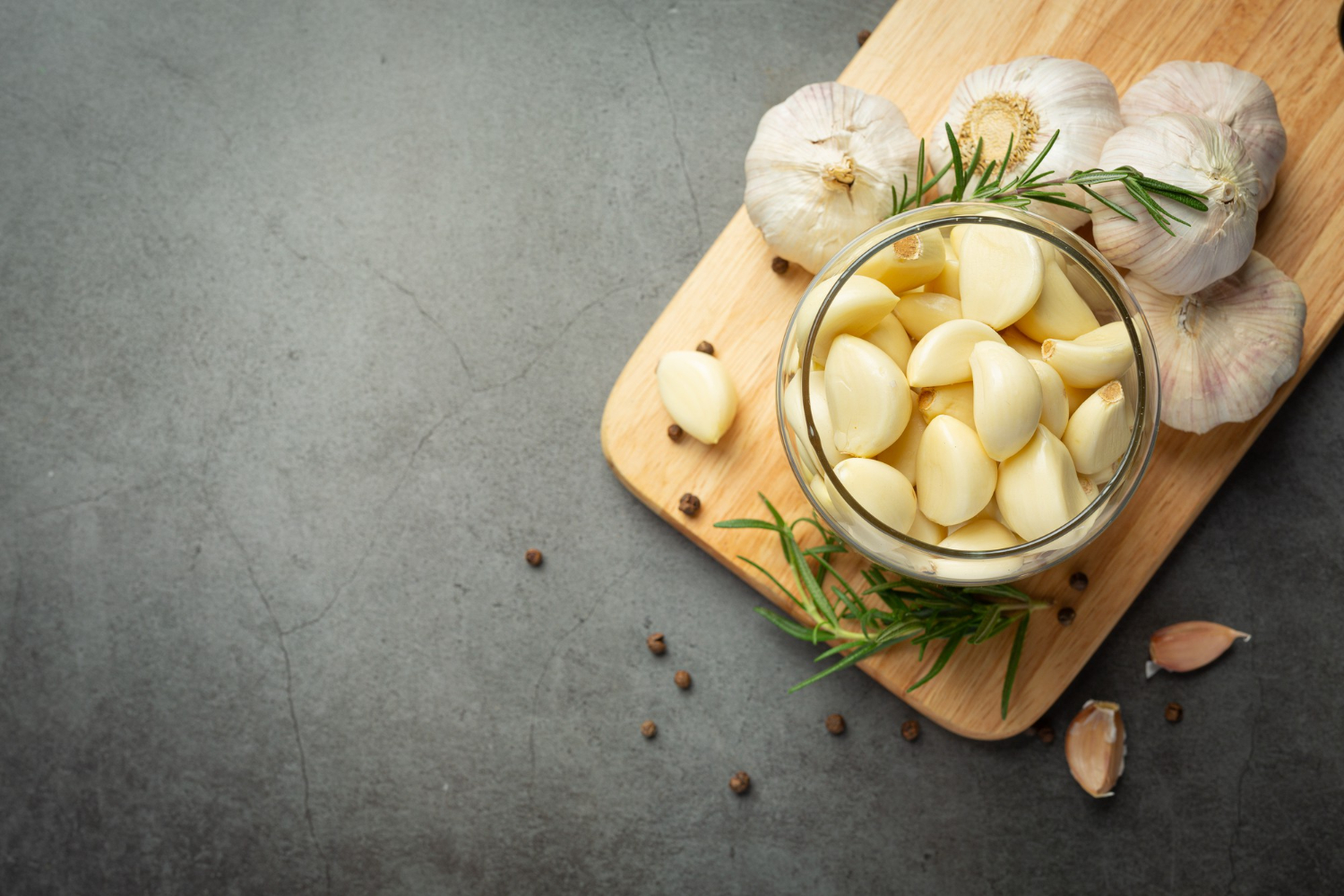
Garlic is one of the best home remedies for mouth ulcers and the way to fight off the bacteria that cause mouth ulcers. Garlic has natural anti-microbial properties, which makes it a great option for fighting off the bacteria that cause mouth ulcers. The compound allicin present in garlic has been found to exhibit potent anti-inflammatory effects. When you eat or apply garlic to the ulcerated area, it can help ease the pain and inflammation and speed up the healing process.
How to use:
- Crush a few garlic cloves and make a paste.
- Apply the garlic paste to the canker sores and leave it on for a few minutes.
- Rinse your mouth with water.
11. Milk of Magnesia
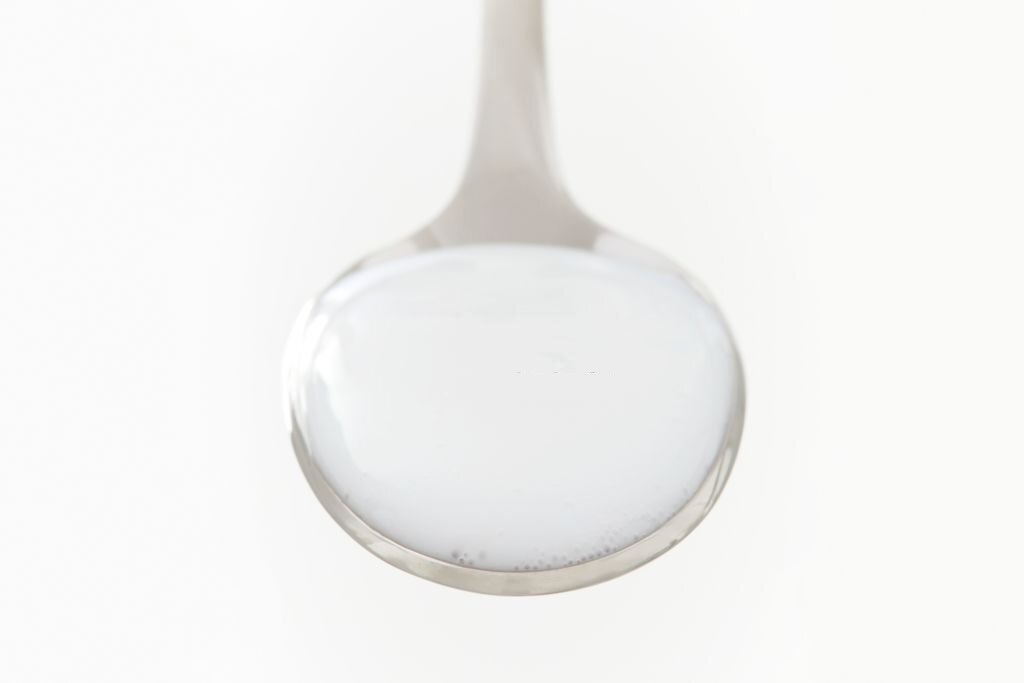
Milk of magnesia (also known as magnesium hydroxide) is an antacid that helps with heartburn and digestive issues. It neutralizes stomach acid and reduces acidity in your digestive system. The fact is that milk of magnesia is a mild alkaline solution. This means that it can neutralize the acidity in the mouth, which in turn can help to reduce the pain and inflammation caused by mouth ulcers.
How to use:
- Apply a small quantity of milk of magnesia to your mouth ulcer.
- Let it sit for 1-2 minutes. Rinse your mouth with water
- Repeat three times a day.
12. Vitamin B complex
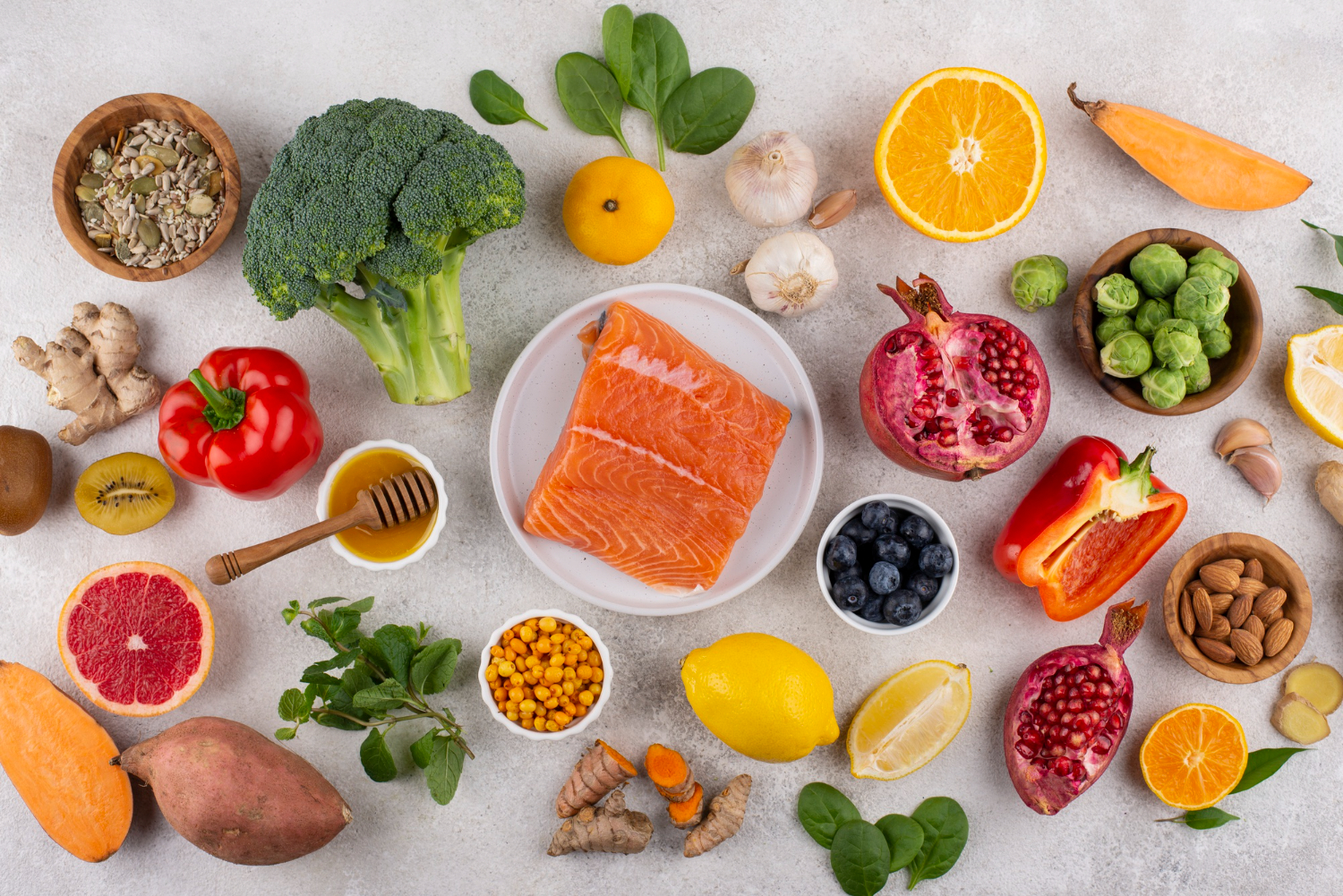
Vitamin B is a group of vitamins that are water-soluble and play an important role in your body’s function. It helps with energy production, metabolism of cells, and nerve functions. A lot of research studies have shown that not getting enough B vitamins, especially B12, can lead to mouth ulcers.
In one study, people with mouth ulcers had way less B12 than healthy people. Taking a vitamin B complex supplement can help you get enough B complex to fight off the pain and inflammation that can cause mouth ulcers.
Many foods are rich in B vitamins, including certain types of meat, poultry, fish, eggs, dairy products, legumes, green leafy vegetables, and seeds. By adding these foods to your diet, you can make sure you are getting all the B vitamins you need to stay healthy and reduce your risk of mouth ulcers.
If you are not getting enough B vitamins in your diet or if you have been diagnosed as a vitamin B deficient, you may need to take supplements. There are many different types of vitamin B complex supplements available, and you can find them at most drugstores or pharmacies.
When you are shopping for vitamin B complex supplements, you will want to make sure you are getting a balanced mix of all essential B vitamins. This includes B12 and B6, as well as folate. It is also important to remember to follow the dosage instructions on the label and to consult with your healthcare provider.
Related: Multivitamin: The 10 Very Best Supplements
13. Epsom Salt
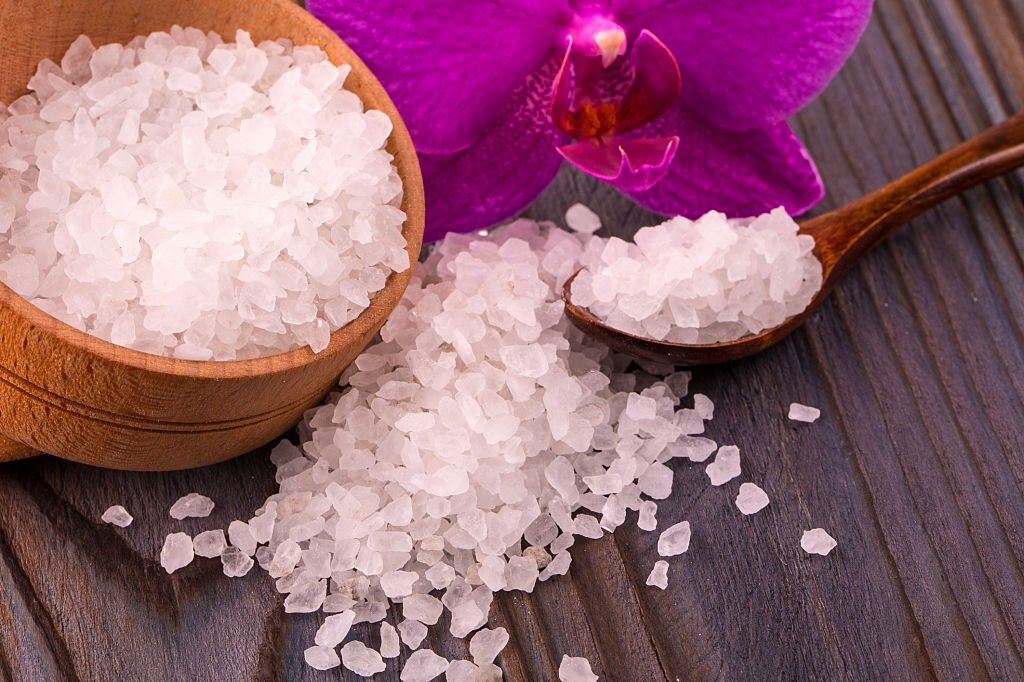
Epsom salt, a natural mineral compound made up of magnesium and sulfate, is great for soothing sore muscles, reducing inflammation, and promoting healing. It is often used in baths to help relax muscles, but it is also a great mouthwash for treating mouth ulcers. Magnesium in Epsom salt helps reduce inflammation, while sulfate helps flush out any bad bacteria. Also, it can help ease pain and discomfort when you have mouth ulcers.
How to use:
- Dissolve one teaspoon of Epsom salt in a cup of warm water.
- Gargle the solution around in your mouth for 1-2 minutes and then spit it out.
- Rinse your mouth with normal water.
- You can repeat this process a few times a day or as per the need.
14. DGL Mouthwash for Canker Sores
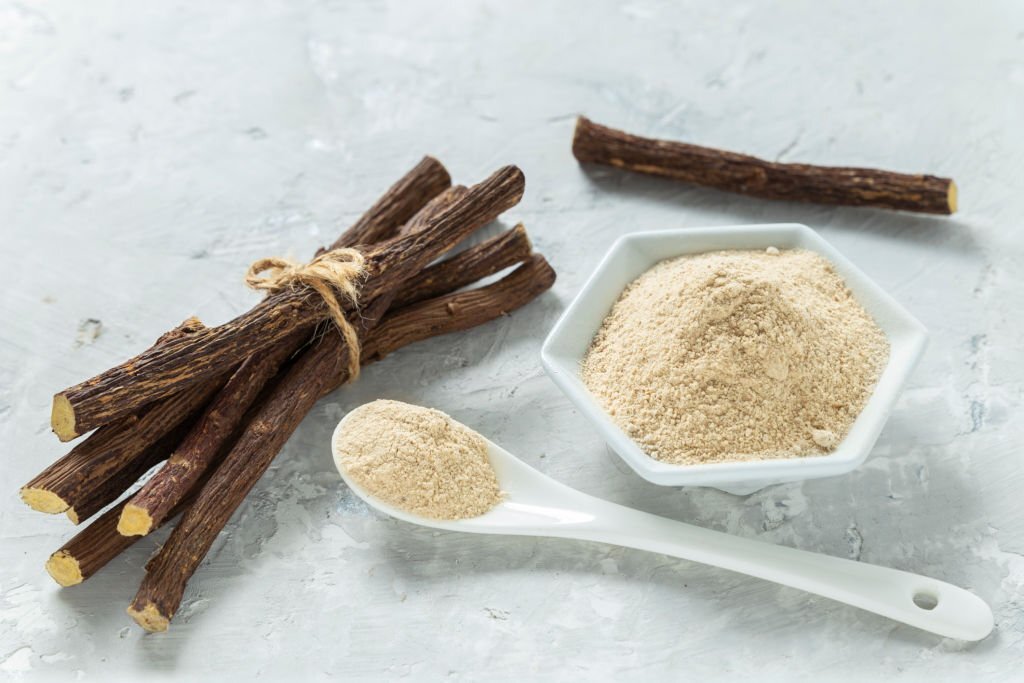
One of the best home remedies for mouth ulcers is DGL mouthwash. It is a natural and safe solution that provides quick relief from the discomfort of mouth ulcers.
DGL, or deglycyrrhizinated licorice, is an extract from the root of the licorice plant. It has anti-inflammatory properties that help in reducing the swelling and redness caused by mouth ulcers. Additionally, DGL also helps in boosting the immune system which promotes faster healing of the ulcers. DGL is supplied in the form of a supplement, which can be used to make mouthwash.
How to use:
- Mix one DGL capsule powder with 1 cup of warm water.
- Swish the solution around your mouth for about 2-3 minutes.
- Spit it out.
The DGL product is also available in the form of a mouth patch, which is used to treat canker sores. The patch can be applied to the affected area and left in place for a minimum of 30 minutes to get rid of mouth ulcers.
15. Basil Leaves for Mouth Ulcer
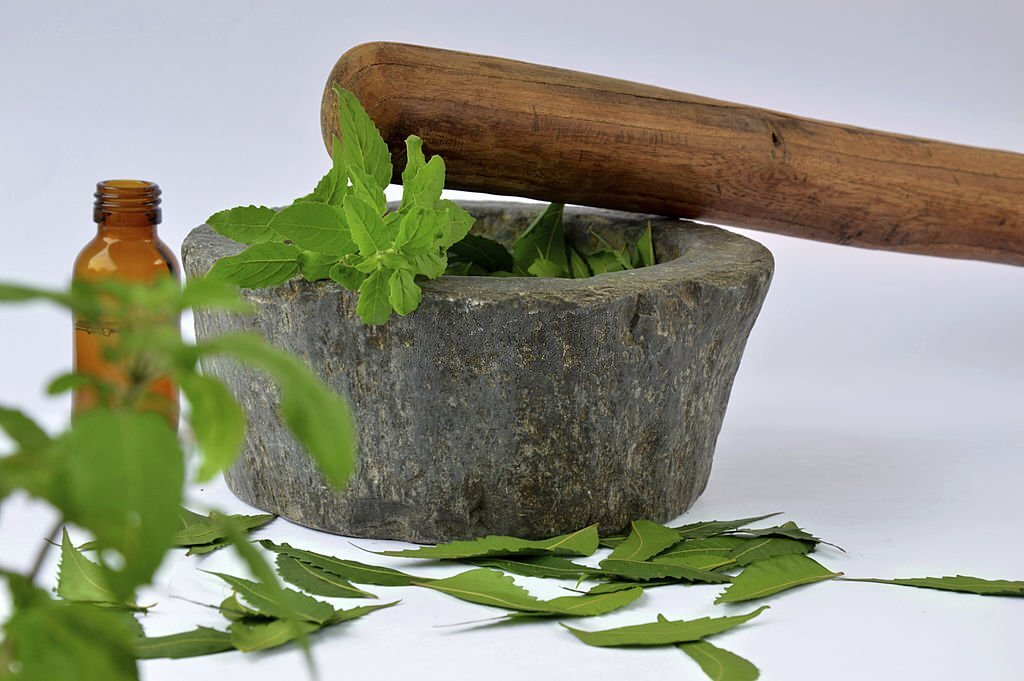
Basil leaves, also known as Tulsi in India, are a traditional Ayurvedic medicinal plant that has been used for centuries to treat a wide range of ailments, particularly mouth ulcers. Its anti-bacterial and anti-inflammatory properties make it the best remedy for these ailments.
How to use:
- Take a few fresh basil leaves and chew them slowly, making sure they come in contact with the sore.
- Chew the leaves for a few minutes and then spit them out.
- Repeat this process 2-3 times a day to relieve the pain and inflammation (or)
- Crush a few fresh basil leaves and make a paste.
- Apply the paste directly to the canker sores and leave it for 10-15 minutes before rinsing it off.
- You can do this 2-3 times a day for quicker healing.
16. Echinacea for Mouth Ulcer

The healing and immune-boosting properties of Echinacea may aid in the healing of canker sores.
How to use:
- Add 1 teaspoon of echinacea to warm water and mix.
- Swish the mixture in your mouth for about 2 minutes.
- Spit it out.
17. Coconut Milk
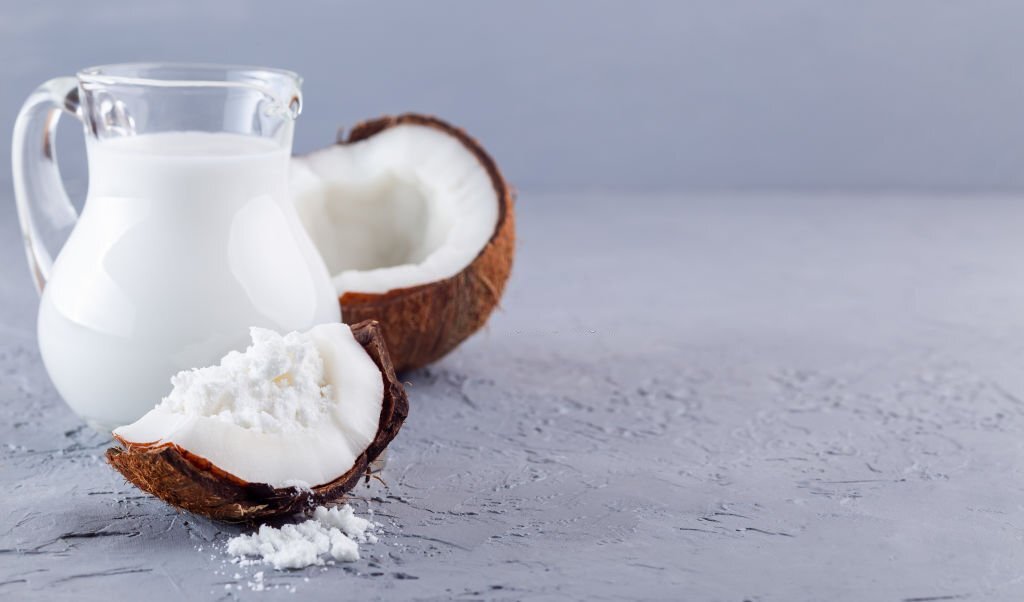
Coconut milk as a mouthwash when experiencing mouth ulcers is one of the most effective home remedies for mouth ulcers. Repeatedly gargling coconut milk three to four times a day is likely to produce a calming effect and reduce pain associated with mouth ulcers.
Types of Mouth Ulcers
Based on ulcer size and number, mouth ulcers can be classified as minor, major, and herpetiform. The main types of mouth ulcers are:
Minor ulcers: Mouth ulcers occur in a variety of forms, with minor ulcers being the most common. These ulcers are characterized by their small size, round, or oval shape, white or yellow in the center, and red in the border. They are typically less than 1 cm and heal within one to two weeks and do not leave a scar. However, they can cause discomfort and may affect your daily activities, including eating and brushing your teeth.
Major ulcers: A major ulcer is a type of ulcer that is deeper than a minor ulcer and may be more than 1 cm in diameter. The center of the ulcer is yellow-gray, with a red border surrounding it. These ulcers may take several weeks to months to heal, and may or may not leave a scar. The pain and discomfort associated with these ulcers can have a major impact on your daily life.
Herpetiform Ulcers: The Herpetiform Ulcer is a small, cluster-shaped sore that is a combination of many small sores. It typically has a diameter of less than 2 mm. These sores can occur anywhere in the oral cavity, such as the tongue, roof of the mouth, and cheeks. Generally, the sores heal within two weeks to four weeks, however, they may reoccur often over time.
Causes for Mouth Ulcer
Mouth ulcers are not known to be caused by a specific etiology or pathology; however, certain factors are considered important, such as nutritional deficiencies, vitamin B12 and vitamin C deficiency, inadequate oral hygiene, stress, infection, digestive issues, and skin diseases. Additionally, other factors may contribute to the development of ulcers.
1. Stress
Stress can lead to the development of mouth ulcers. When a person is stressed, their immune system is weakened, making them more prone to infections and inflamed conditions. Stress can also cause mouth ulcers to appear in the first place or trigger an outbreak of ulcers. Therefore, stress levels should be managed and relaxation should be maintained.
2. Vitamin Deficiency
Mouth ulcers can also be caused by a diet that is deficient in a variety of vitamins and minerals, including vitamin B12 and iron, as well as folic acid. The deficiency of these nutrients may lead to a weakening of the body’s immune system, which can result in the development of ulcers in the mouth. Therefore, it is important to ensure that one is consuming a diet that is rich in these essential nutrients.
3. Trauma
Local trauma and stress are the most common causes of aphthous ulcers. However, oral mucosa injuries can also be the result of accidental self-biting or dental procedures, toothbrush bristles, sharp-edged foods, anesthetic injections, and environmental and emotional stress.
4. Food Allergies
Food allergies occur when your body’s immune system mistakenly reacts to a specific type of food as if it were harmful. When you eat a food that you are allergic to, your immune system responds by releasing certain chemicals and antibodies. These substances can cause inflammation and irritation in various parts of your body, including your mouth. This inflammation can lead to the formation of painful mouth ulcers, as well as other symptoms like swelling and redness. The common foods that cause food allergies are citrus fruits, dairy products, gluten, etc.
Mouth Ulcer: The Do’s and Don’ts
If you have a mouth ulcer, there are several things you can do to manage it effectively.
The Do’s
Gargle your mouth with salt water or an antiseptic mouthwash to get rid of pain and inflammation.
- Apply a cold compress to the affected area like ice cubes or aloe vera.
- Use toothpaste that does not contain sodium lauryl sulfate. It can irritate canker sores.
- Avoid spicy and acidic foods that can irritate the ulcer.
- Get enough rest and intake plenty of fluid which helps to heal your body fast.
The Don’ts
- Avoid touching canker sores with your tongue or fingers, as this can cause further irritation or infection and even extend the healing time.
- Avoid brushing your teeth too hard. This can irritate the canker sore and make it more painful.
- Hard foods can irritate the ulcer or make it worse.
- The use of tobacco products can delay the healing process of the mouth ulcer.
Frequently Asked Questions (FAQs)
Mouth ulcers can be caused by a variety of factors such as stress, vitamin deficiencies, injury to the mouth, allergies, hormonal changes, and many other infections.
Mouth ulcers usually last between 7-10 days, however, they can sometimes last longer based on the type of the ulcer.
Maintaining good oral hygiene, avoiding foods that cause irritation and allergies, consuming enough vitamins, and managing stress can help prevent mouth ulcers.
Most mouth ulcers typically resolve within one to two weeks on their own, however, if the sore is particularly persistent and does not improve following home remedies, then it is recommended to seek medical attention. Your physician may suggest the use of mouthwash or other treatments to speed up the healing process.
References
- Scully, Crispian, and Rosemary Shotts. “Mouth ulcers and other causes of orofacial soreness and pain.” Bmj 321.7254 (2000): 162-165.
- Ship, Irwin I., and Dan A. Galili. “Systemic significance of mouth ulcers.” Postgraduate Medicine 49.1 (1971): 67-72.
- Mittal, Shubham, and Ujjwal Nautiyal. “A review: herbal remedies used for the treatment of mouth ulcer.” mouth 8 (2019): 9.
- Vaishnavi Burley, Dr, et al. “Medicinal plants for treatment of ulcer: A review.” Journal of Medicinal Plants 9.4 (2021): 51-59.
Disclaimer
The health information provided on this page is intended to be for informational and educational purposes only and should not be used as a substitute for medical advice or treatment.

